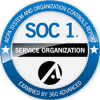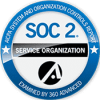Organizational cultures are uniquely designed to preserve their status quo. These norms inform and direct the human resources of institutions in order to maintain and preserve their standard operations. Language, information, and data bind organizational culture and sustain the values and principles of their missions.
Significant change in organizations requires a fundamental transformation of culture, values, and operations. This is particularly true in health care where provider systems have evolved in proprietary silos and patient level health information has been preciously hoarded. Health care reform requires a significant transformation which includes an environment where quality is a highest level priority, and cost is based on the value of services provided and outcomes achieved.
One of the key requirements for health systems change is the evolution of the existing culture in order to support new patient-centered approaches. This shift breaks down the silos between providers and systems of care, and fosters a culture where collaboration is a fundamental norm. This can only be achieved through an open source approach to patient information which shares key data among providers, and preserves and respects patient confidentiality.
This new approach to transforming health care culture requires a fundamental shift away from patient information and medical records that are circumscribed in provider silos. Rather, what is needed is a common repository of key information that informs and guides all members of the health care treatment team. This is difficult or perhaps impossible to do within the existing culture of health care practice that hoards Patient information in proprietary health records.
There are two options for how to transform health care as it relates to patient data and the existing siloed approach to health records. Either, all providers must adopt a common electronic health record that is open source, is consented, and available to all approved providers participating in a patient’s care. Or, a new approach that supports care coordination is required. A new and shared repository of health information for care coordination makes available the necessary information and data to supports real time and open source data sharing and collaboration among providers and treatment teams.
Care coordination technology solutions help bridge the comprehensive spectrum of health care providers including primary care and specialty providers, hospitals and facilities, and community based resources and supports. These systems provide a platform for shared information that is available and supports all participating team members and also includes patients and their care givers. These systems must reduce dual entry of patient information and coordinate with existing health record systems to the greatest extent possible.
As providers learn to adapt, and adopt open source communication and information sharing, the culture of medical practice and health care will evolve. Health care practice will truly transform as patient-centered approaches to information and data sharing foster coordination of care and team based collaboration. Additionally, this approach will also foster better patient engagement, activation, and informed decision making. In this approach quality initiatives become standards of the culture. This patient-centered approach must always be respectful and responsive to the needs of patients and preserve confidentiality of the information that is collected and shared.
By Allen S. Daniels, Ed.D., Clinical Director, InfoMC








